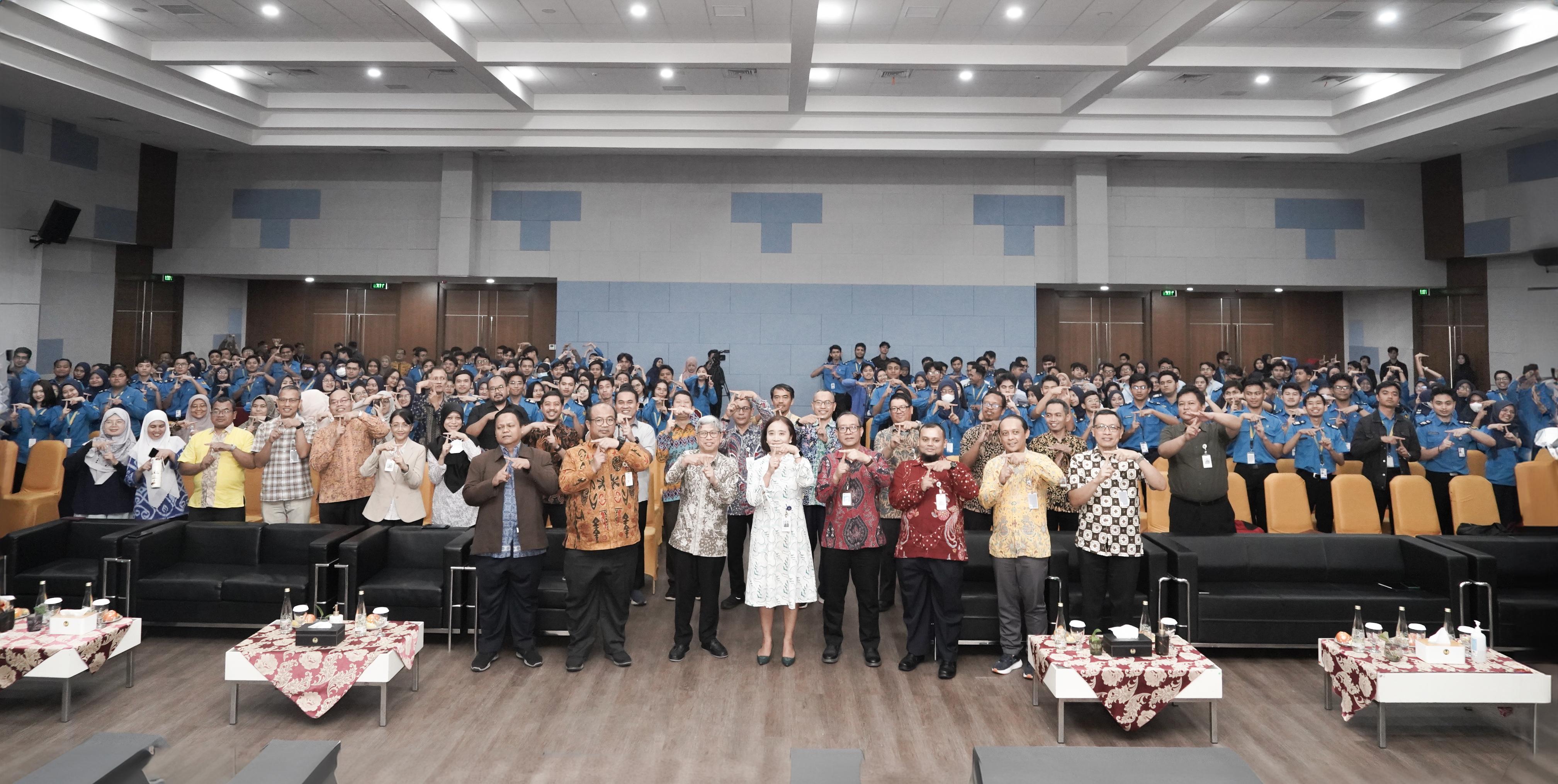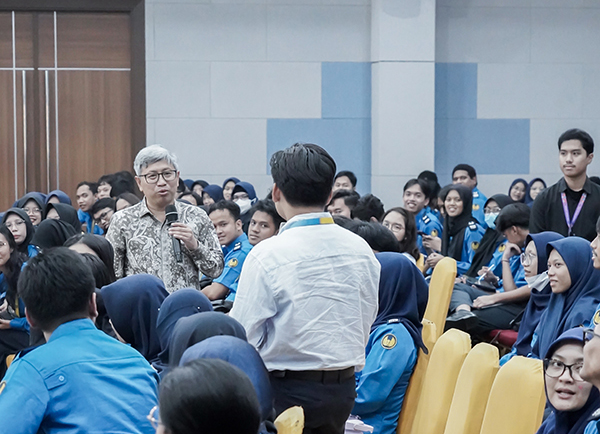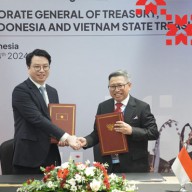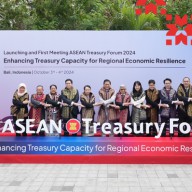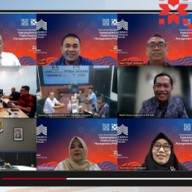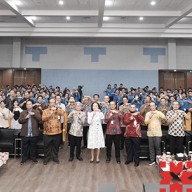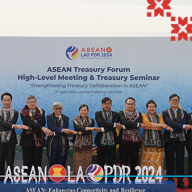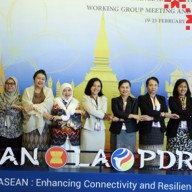Director General of the Treasury, Astera Primanto Bhakti, expressed his appreciation for the Treasury Festival held at the State Polytechnic of Finance (PKN) STAN on Tuesday (02/07). He hopes that the students of this Ministry of Finance civil service polytechnic will gain a deeper understanding of the tasks and functions of the Directorate General of the Treasury (DJPb).
In the event, the Director General of the Treasury, as a speaker in the Leaders Talk session, conveyed that PKN STAN students will be part of the demographic bonus. That means, they are part of the workforce that is expected to help increase economic growth in Indonesia. By 2045, coinciding with its 100th anniversary, Indonesia is targeted to become one of the ten most influential countries in the world. Meanwhile, a number of geopolitical tensions are currently underway in the world, which have an impact on the global economy. In the near future, there will also be a change in national leadership. These challenges will require clear mapping to overcome them, including in state financial planning.
"As written in the Ministry of Finance logo, Nagara Dana Rakca, meaning the guardian of state finances. In the state budget cycle, we, among other things, disburse funds and monitor. We use the SPAN and SAKTI systems, we manage cash management, and we manage budget execution at around 18,900 working units in 1884 Ministries/Agencies in 38 provinces, including transfers to regions. The use of the budget is reported and the DJPb compiles the Central Government Financial Report (LKPP). The report is then submitted to the DPR to be accounted for as a Law on Accountability for the Implementation (P2) of the State Budget. This is what is actually called the core of the Treasury," said the Director General of the Treasury.
The Director General of the Treasury also conveyed that the DJPb has a Regional Chief Economist (RCE) and Financial Advisor program. The RCE aims for the DJPb to contribute to mapping economic problems in regions. Through cooperation with academics, the DJPb provides recommendations through economic analysis for regional governments. PKN STAN, as part of the academic world, can also participate.
"This is in line with the directive of the Minister of Finance, for friends at PKN STAN to study economics, statistics, econometrics, and analytical skills in more depth."
The role of the DJPb is not only strengthened domestically, but also extends in the form of international cooperation. One of them is by initiating the formation of the ASEAN Treasury Forum (ATF) since last year. This year, the ATF will hold a meeting in Bali in September.
"There are still ASEAN countries that do not fully understand the treasury function. There are countries that do not have good cash management, for example, they do not have a cash buffer. We encourage countries in Southeast Asia to have the same standards. The short-term program of the ATF is the development of capacity building and mentorship programs. While in the medium term, working groups, ATF Knowledge Hub, and the expansion of the ATF scope will be implemented. In the long term, the ATF is expected to involve more advanced countries such as Japan, South Korea, and China. PKN STAN can participate, for example, through internship programs between countries, student and lecturer exchanges, or collaborative development of scientific studies," explained the Director General of the Treasury in the event themed Role of ASEAN Treasury Forum for Strong and Sustainable Finance of ASEAN Countries. [LRN/SW]

